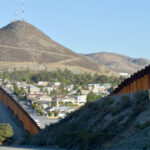The Live Q&A Is Next Week…
Still haven’t joined the Patreon? Well, if you don’t want to miss out on the Live Q&A, join “The Analyst” tier before next Wednesday, October 23rd! And if you needed another reason, if you join me on Patreon in the month of October, your subscription fees for the rest of the year will be donated to MedShare.
President Biden is making a trip out to Africa (since recording, this trip has been postponed due to national weather issues). No, he’s not going on safari; he’s looking to shake some babies and kiss some hands over in Angola.
During the Cold War, Angola buddied up with the Soviets. Despite the conflict of interest, American oil companies still helped Angola make oil for Europe. Play that forward to the present, and Angola is producing around 2 million barrels of crude per day. And while that’s something, the US has its oil needs covered, but the Angolans still have something the Americans need.
Angola provides a gateway to the mines in Africa rich with minerals and natural resources, and the US would love to get a key to that “gate”. So, the US is investing in things like railway infrastructure, in order to help these resources funnel directly to the US or Europe.
The US isn’t the only interested party though. Angola is encouraging foreign investment and benefiting from the competition. Biden’s visit highlights how committed the US is in developing these ties with Angola and securing a supply chain for these resources.
Here at Zeihan on Geopolitics, our chosen charity partner is MedShare. They provide emergency medical services to communities in need, with a very heavy emphasis on locations facing acute crises. Medshare operates right in the thick of it, so we can be sure that every cent of our donation is not simply going directly to where help is needed most, but our donations serve as a force multiplier for a system already in existence.
If you sign up for our Patreon page in the month of October, the proceeds from your subscription for the remainder of 2024 will be donated directly to MedShare. So, you can get our all of the perks of joining the Patreon AND support a good cause while you’re doing it.
We encourage you to sign up for the Patreon page at the link below.
Transcript
Hey, everybody. Peter Zeihan coming to you from Washington, D.C. That smell of auditorium behind me. Today we’re going to talk about an upcoming trip that Joe Biden has to Angola. Now, during the Cold War, the United States and Angola were definitely on opposite sides. There was a civil war there that the Soviets and the Cubans and later the Chinese were supporting.
On one side, we were supposedly on the—oh, hello, that’s a big-ass squirrel that seems to think I have food for it. Anyway, during that time, the Americans were on one side, the Soviets were on the other side, and American oil companies were helping the Soviet-backed government generate oil that was then sold to Europe.
And, you know, Cold War, weird stuff. Anyway, bottom line is that the Cold War is long since over. Americans are saying bygones, and the Angolans are a little curious as to the details, but they’re open to some sort of a deal. It’s not that Angola is all that important to the United States for its own sake.
I mean, yes, they produce one and a half to two million barrels of crude a day, but the U.S. is the world’s largest refined product exporter now and the world’s largest crude producer. So it’s not like we need it for us or even for our allies anymore. The issue has to do with mining. Africa is kind of the great frontier for large-scale mining, particularly on a belt of countries going from Congo south.
This is the old Cecil Rhodes group. Cecil Rhodes is the guy who basically founded modern South Africa. And from the copper belt in southern Congo, there’s a series of collection railroads that link together and form a spine going down Zambia, Zimbabwe, Botswana, and ultimately reaching the better ports in South Africa. Well, there’s something called the Benguela roadway or the Liberta corridor that cuts across Angola to the Atlantic that intersects this line.
And ever since apartheid ended in South Africa, the government has become increasingly dysfunctional, and the maintenance on the main spine railway has steadily degraded to the point that it’s pretty rough in a lot of places. So the idea the United States has is if we can rehabilitate the Liberta corridor and rebuild the Benguela Railway, which dates back to the Portuguese occupation a century ago…
Oh. Then there’s another route for this stuff to get out, and it would be going to the Atlantic instead of the Indian Ocean basin. And that’s closer to the United States and Europe, as opposed to China. So it’s become a bit of a tug-of-war that the Angolans are encouraging, because everybody’s spending infrastructure money in their country.
And the people who won the civil war, the pro-Soviets, are a minority. So now we have the group that the United States used to support, which is closer to the majority. That’s kind of an oppressed population. So once again, there’s all kinds of weird geopolitics going on in this southwest African nation. At this point, building a railway is pretty straightforward.
The United States is basically invested in this project as one of its bigger overseas aid projects, and it’s probably going to be completed and operational within a couple of years. Too little, too late? Time will tell. But the country is very much in play. And so, of course, Uncle Joe’s going there.







